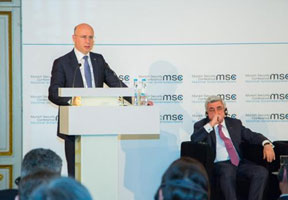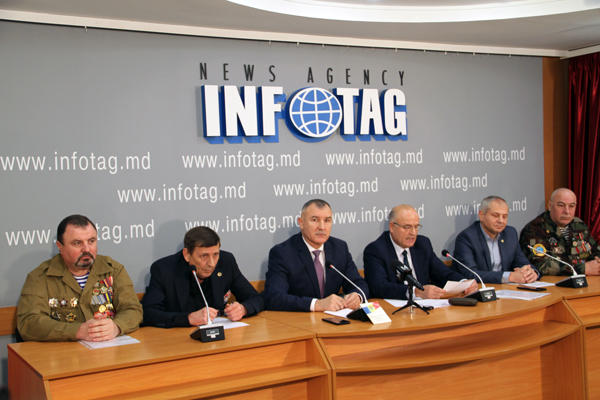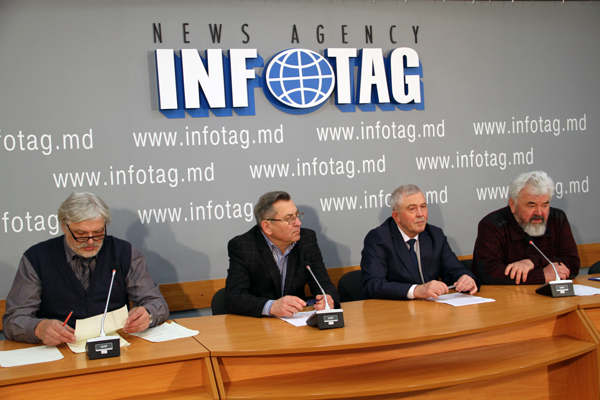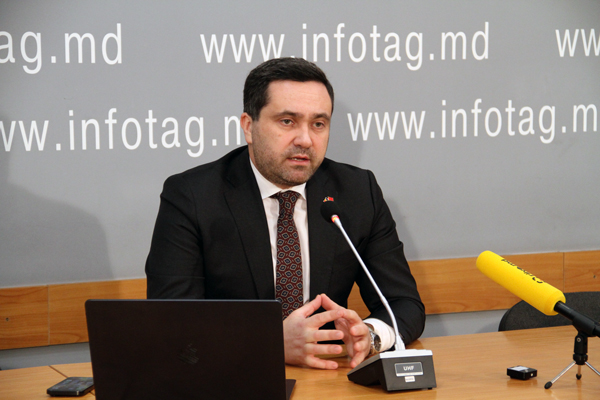Politics
IN MUNICH, PREMIER FILIP COMPLAINED ABOUT DIFFICULTIES IN MOLDO-RUSSIAN RELATIONS

During the 54th Munich Security Conference (MSC) held last weekend, Moldovan Prime Minister Pavel Filip complained about the difficulties that are complicating the Moldo-Russian relations.
Filip underscored the negative international context, which the new independent states have found themselves in while making their hard way through a transition period.
“The future is getting increasingly unpredictable both at the level of relations between great powers and in various regions of the world. Unpredictability, in its turn, generates citizens’ mistrust in state institutions and rules, provokes political disorientation, and scares off investors. All this influences the economic growth. International relations require a greater clarity and stability”, said the Moldovan Prime Minister.
Pavel Filip said that “in the conditions of such uncertainty, the domestic and external problems, which Moldova has to handle, are further complicated by the difficulties in relations with Russia and by the absence of a strategic direction of our development”.
“However, Moldova is working to resolve these problems. We are promoting an ambitious agenda of reforms based on the EU-Moldova Association Agreement”, said Filip.
Speaking of Moldova’s relations with Russia, the Prime Minister characterized them as complicated, and spoke out for dialog with Russia on the principles of partnership and mutual respect.
“We want balanced and friendly relations with Moscow based not on geopolitical interests or a desire to influence on the situation in Moldova but on a realistic desire to resolve the Transnistrian conflict and to remove foreign armed forces and arsenals from our national territory”, stressed the Moldovan Premier.
In the course of an interactive discussion on the country’s geopolitical development vector and on Moldova’s main foreign political problems, Pavel Filip complained also about the state of uncertainty that can be observed currently in Eastern Europe as well.
In his words, the first category of problems pertains to domestic affairs such as structural reforms, consolidation of democratic institutions, struggle against corruption, poverty reduction and modernization of the infrastructure. The second one is conditioned by the fact that the main directions of the geopolitical division between the East and the West runs through Eastern Europe. And the third category is closely linked with the previous one and pertains to the relations of each country with Russia.
Besides the above-mentioned problems, there is a 4th category that adds to the general state of uncertainty and in particular the absence of a definite strategic direction of the region’s development.
“Moldova faces all of these problems, though in various degrees, and is trying to resolve or reduce them. We are promoting an ambitious agenda of reforms based on the EU-Moldova Association Agreement”, said Pavel Filip.
The interactive discussion was attended by Commissioner for European Neighborhood Policy and Enlargement Negotiations Johannes Hahn, Konstantin Kosachev – Chairman of the Standing Committee for International Affairs in the Council of the Federation [the Upper Chamber of the Russian Federation’s bicameral legislative assembly], and President of Armenia Serzh Sargsyan.
























Add Comment